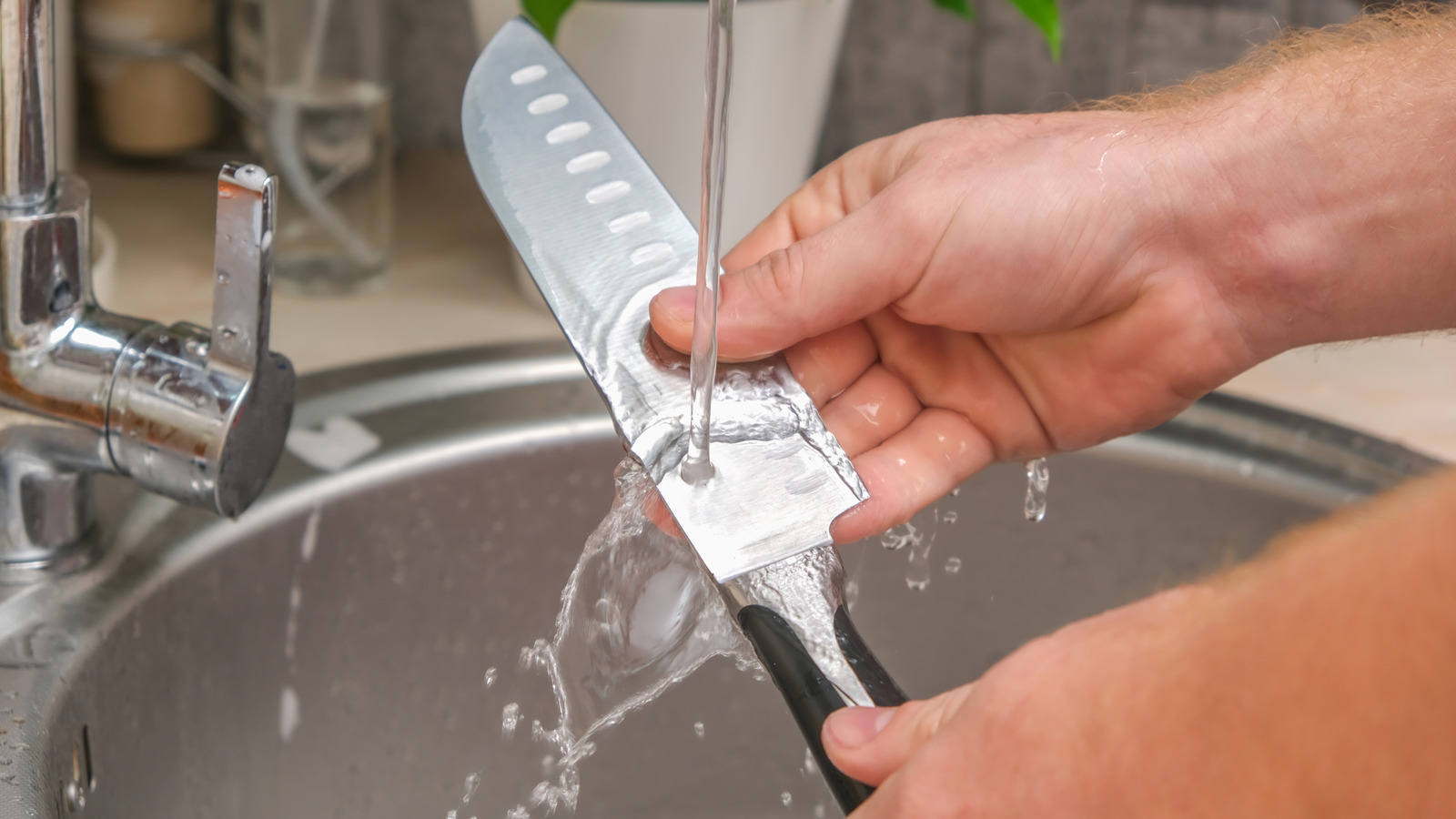Although it seems like a fairly simple task, cleaning sharp knives can be a challenge. Many people shred their sponges — and risk injury — when trying to clean their knives. This is especially common when they're hurrying.
If you are someone who doesn't know that and are really running through all those sponges, you need to change up your cleaning technique. To effectively clean a sharp knife, make sure you hold it with the blade facing away from you. Wipe from the knife's spine (the dull side) toward the edge, not the other way around.

(You should run the sponge along the blade, not against it.) For tougher residue, don't scrub aggressively. Just soak the knife for a minute or so (with the handle sticking out so nobody forgets it's there), and try cleaning it again.
Of course, you can always use a dishcloth or brush for this technique; both are less likely to be cut apart by the blade. Once the knife has been washed, dry it immediately with a clean towel. Leaving it to air-dry isn't great for the blade; the knife will become dull and can even rust.
You should always store the knife safely by using a magnetic strip or blade guard ( ). Remember: Keeping your knife clean is necessary, but keeping it safe is vital. Cleaning methods to avoid It's tempting to let a dirty knife soak in the sink while you finish cooking, but soaking it for any longer than a couple of minutes is one of the worst things you can do with your blade.
First off, it's a safety hazard. If someone else reaches into the soapy water without knowing a blade is in there, they could get cut. Second, soaking will damage the knife.
The metal can rust over time and wooden handles will absorb water, swell, and eventually crack or loosen. If you're soaking it for prolonged periods of time, that nice knife won't stay nice for long. You should also avoid using a dishwasher to clean your knives.
The heat, moisture, and detergents in dishwashers are rough on sharp edges; a knife that's regularly run through the dishwasher will lose its edge faster than one that's hand-washed, and you'll constantly have to . On top of that, washing it in a dishwasher can cause the knife to bang against other utensils or the rack itself, leading it to chip or completely break. Recommended.
Food

How To Safely Clean Sharp Knives Without Tearing Up A Sponge

When cleaning sharp knives, it's easy to accidentally slice apart your sponge. If you do this, you need to learn this technique to safely clean your knives.















